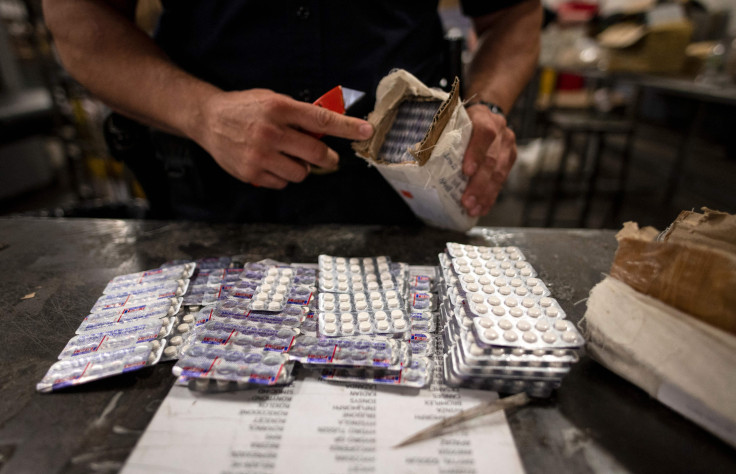
Interpol has announced a record seizure of synthetic drugs worth an estimated $6.5 billion in a sweeping operation that stretched across Asia and North America. The crackdown, called Lionfish-Mayag III, not only exposed the scale of methamphetamine trafficking worldwide but also highlighted Mexico's central role in the booming trade of meth and fentanyl that is fueling record overdoses in the United States.
Between June 30 and July 13, 2025, authorities in 18 countries carried out coordinated raids that netted 76 metric tons of drugs. According to Interpol, this included 51 tons of methamphetamine in both liquid and solid form and a staggering 297 million yaba tablets, the small pink meth pills popular in Southeast Asia.
The ingenuity of traffickers shocked investigators. Some shipments were hidden inside surfboards, pineapples, coffee makers, tea bags, and even cat food sacks. Officials described it as one of the most sophisticated concealment efforts they had ever seen.
A total of 386 people were arrested. While the largest seizures took place in Southeast Asia, with nearly 4 tons of meth recovered in Laos and over 9 million yaba tablets seized in Myanmar, Mexico was also a major focus of the operation.
Mexico's Contribution to the Bust
Mexican authorities reported the seizure of 1.7 tons of methamphetamine and more than 190,000 fentanyl pills during the operation. That fentanyl discovery was so alarming that Mexico formally requested Interpol issue an urgent global notice warning about new, highly toxic precursor chemicals being used to manufacture the drug.
The bust reinforces what U.S. officials have been warning: Mexican cartels have cemented their position as the primary suppliers of illicit fentanyl and methamphetamine to the American market.
U.S. State Department Sounds the Alarm
The U.S. State Department's 2025 International Narcotics Control Strategy Report points squarely at Mexico as the hub of synthetic drug production. The report states that nearly all fentanyl seized in the U.S. originates from labs controlled by cartels like the Jalisco New Generation Cartel (CJNG) and factions of the Sinaloa Cartel.
The report also warns that Mexico remains a key transit country for precursor chemicals arriving from Asia. Once processed in clandestine labs, the drugs are smuggled north through established trafficking corridors and across the U.S.-Mexico border.
According to U.S. officials, Mexico has laws controlling eight key precursors and watchlists for dozens more, but enforcement remains patchy. Weak oversight at ports, corruption, and cartel intimidation undermine these regulations.
Billions at Stake and Pressure from Washington
The stakes are high. U.S. agencies estimate that fentanyl alone kills more than 70,000 Americans annually, making it the deadliest drug crisis in modern U.S. history. The synthetic drug trade generates tens of billions of dollars for cartels each year, money that fuels violence, corruption, and further expansion of their global networks.
President Donald Trump has repeatedly threatened Mexico with tariffs on exports if it fails to rein in fentanyl and irregular migration. Analysts say the latest Interpol bust gives Washington more leverage to demand tougher action from Mexico.
© 2025 Latin Times. All rights reserved. Do not reproduce without permission.







